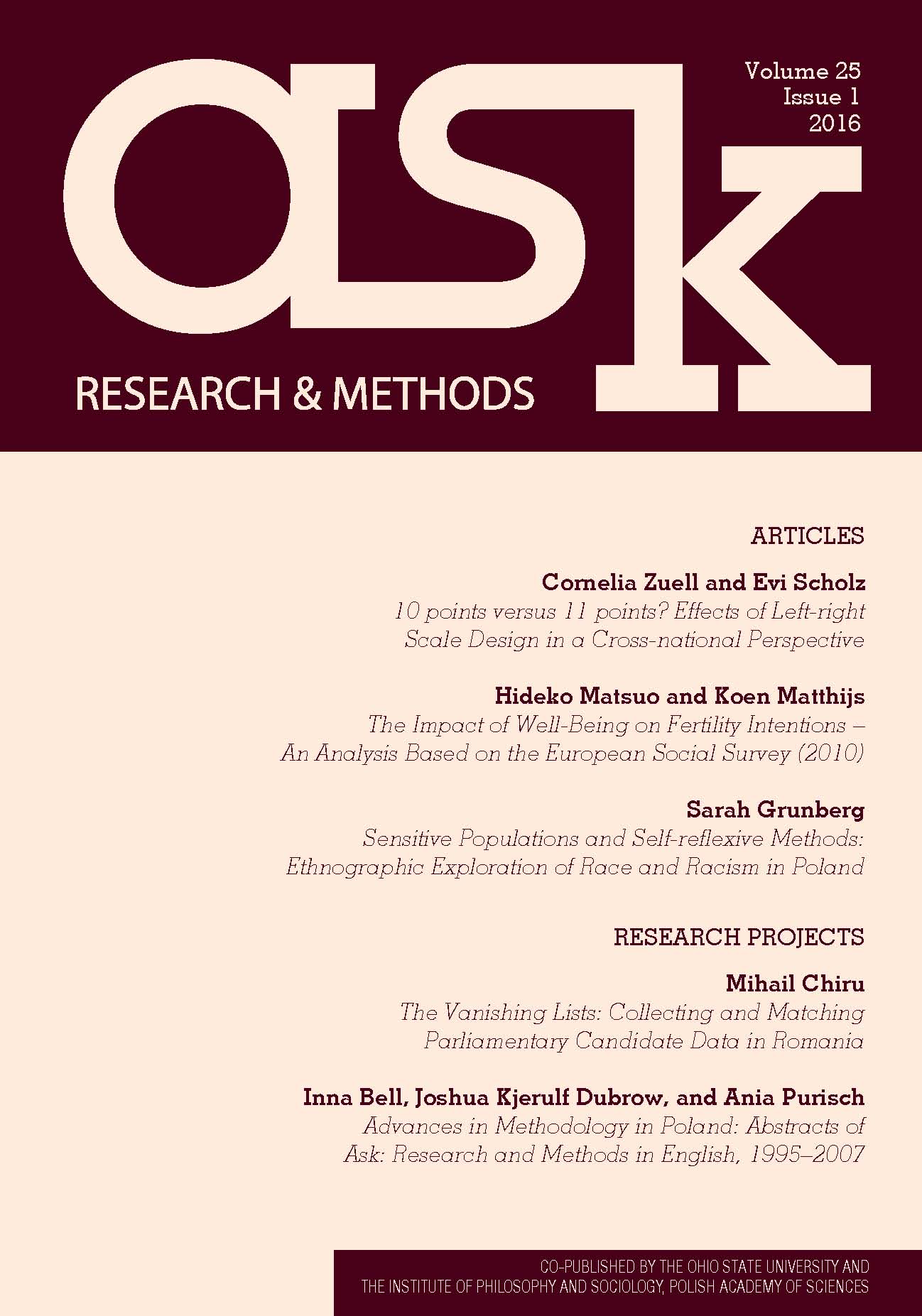The Impact of Well-Being on Fertility Intentions – An Analysis Based on the European Social Survey (2010)
The Impact of Well-Being on Fertility Intentions – An Analysis Based on the European Social Survey (2010)
Author(s): Hideko Matsuo, Koen MatthijsSubject(s): Social Sciences, Sociology
Published by: Instytut Filozofii i Socjologii Polskiej Akademii Nauk
Keywords: fertility intentions; well-being; life course; linked lives; cross-national comparable sample; European Social Survey
Summary/Abstract: This article examines the relation between well-being and fertility intentions in Europe and addresses three main research questions: Does overall well-being infl uence fertility intentions? What kind of well-being factors are more important in the determination of fertility intentions (individual-level subjective ones vs. individual-level objective ones vs. country-level ones)? Does the role of specifi c well-being variables change over the course of the life course, i.e. as age and parity increase? In accordance with the theory of planned behaviour (Ajzen, 1991), fertility intentions are studied as important predictors of actual fertility behaviour. And in line with established studies, a broad approach is taken towards the concept of well-being. The analysis is theoretically grounded in the framework of methodological individualism (i.e. micro-macro linkages). Use is made of data on women aged 20-39 in 27 countries, which were taken from the ‘Family, work and well-being’ module in the 5th round (2010) of the European Social Survey. The analysis of a comparable European population sample is made possible by taking account of both unit and item non-responses, and correcting for them. Our analysis shows overall positive but small correlations between well-being and fertility intentions in all countries: the higher the level of well-being, the higher the intended fertility, although the strength of the correlation differs between countries. Also, overall, individual-level objective well-being factors, such as level of education and employment status, have a larger impact on fertility intentions than individual-level subjective well-being factors and country-level well-being factors regarding human development, gender inequality and region. Changes in the effects of these well-being factors are found depending on the stage of the life course: as parity and age increase, the importance of country-level well-being effects increases. This shows that family-friendly country policies targeted to these groups can have positive effects on fertility.
Journal: ASK. Research & Methods
- Issue Year: 2016
- Issue No: 25
- Page Range: 17-45
- Page Count: 29
- Language: English

